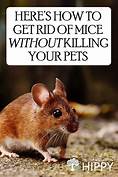Can You Have a Wombat as a Pet?
Wombats are fascinating marsupials native to Australia. Their distinctive appearance and gentle behavior have made them popular in zoos and wildlife parks worldwide. However, keeping a wombat as a pet is not as straightforward as it may seem. Here's a closer look at the factors you need to consider before deciding if a wombat is a suitable pet for you.

Legal and Ethical Considerations
1. Legality: The legality of owning a wombat as a pet varies from state to state in Australia. In some states, it is illegal to keep a wombat without a permit, while in others, it is completely prohibited. It's essential to check local and state regulations before considering purchasing a wombat.
2. Ethical Concerns: Wombats are wild animals, and keeping them in captivity can raise ethical concerns. Wombats have complex social structures and require a vast amount of space to roam and forage. Keeping them in a domestic setting may compromise their well-being and natural behaviors.
Habitat and Care Requirements
1. Space and Enclosure: Wombats need ample space to burrow, forage, and move around. A large, secure enclosure with a combination of open areas and sheltered spaces is necessary. The enclosure should have a deep layer of soil for burrowing and various plants for foraging.
2. Diet: Wombats are herbivores and their diet primarily consists of grasses, roots, and bark. Providing a varied diet that mimics their natural feeding habits is crucial for their health and well-being.
3. Socialization: Wombats are social animals and thrive in groups. Keeping a single wombat can lead to boredom, loneliness, and behavioral issues. If you decide to have a wombat as a pet, it's best to keep a pair or a small group to ensure their social needs are met.
Behavioral Considerations
1. Nocturnal Behavior: Wombats are nocturnal animals, meaning they are most active at night. This can make it challenging to interact with them during the day. They may also be disruptive during the night with their digging and foraging activities.
2. Territorial and Defensive: Wombats are territorial animals and can become aggressive if they feel threatened. They are known to charge at perceived threats and use their powerful claws and teeth to defend themselves. Proper training and socialization are essential to minimize aggressive behavior.
3. Destructive Behavior: Wombats are known for their digging habits. They can create extensive burrow systems that can undermine structures and damage gardens. Their chewing behavior can also cause damage to furniture and other household items.
Conclusion
Owning a wombat as a pet is a significant commitment that requires a deep understanding of their unique needs and behaviors. While they can be fascinating and rewarding companions, the challenges associated with their care and legal restrictions make them unsuitable for most individuals. If you are considering getting a wombat as a pet, it's crucial to thoroughly research local regulations, habitat requirements, and behavioral traits to ensure you can provide the best possible care for these remarkable creatures.
Declaration: All article resources on this website, unless otherwise specified or labeled, are collected from online resources. If the content on this website infringes on the legitimate rights and interests of the original author, you can contact this website to delete it.






